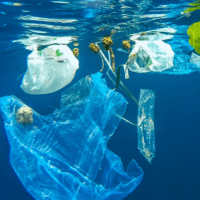Government decision fails cod again: Oceana Canada states 2018 catch levels go against scientific advice
Press Release Date: June 12, 2018
Toronto, ON, (June 12, 2018) – Today, Fisheries and Oceans Canada (DFO) released its fishery management approach for Northern cod, allowing a catch level of up to 9,500 metric tonnes. This approach goes against scientific advice to reduce fishing pressure to the lowest possible level for the depleted stock.
In March 2018, Oceana Canada advised DFO that it should set the 2018 total removals to 2015 levels, before the rapid increase in catch levels occurred. In addition, it advised that there should be no recreational fishing until the government is able to monitor catch levels in the fishery.
“We are disappointed that this level of fishing will be permitted for this depleted stock, which is deep in the critical zone,” said Robert Rangeley, Director of Science, Oceana Canada.
In 2017, the stock declined by 30 per cent and is projected to decline further next year. The stock is now at levels comparable to when the 1992 moratorium was put in place. Despite being under moratorium, fishing has increased over the last three years to a point where Northern cod is one of the largest groundfish fisheries in Atlantic Canada.
In the last two years, DFO allowed the fishery landings to increase from 4,400 metric tonnes in 2015 to 13,000 in 2017 and allowed an additional unknown amount of landings in the recreational fishery. During this period, fisheries monitoring was inadequate, estimates of total removals unreliable and there was no total allowable catch level set for the fishery.
“Oceana Canada does recognize the value of a commercial fishery. It is an important source of income for communities,” says Rangeley. “However, given the critical state of this stock the Minister should have only allowed a modest harvest. In addition, DFO should have mandated the collection of scientific information using appropriate catch monitoring tools and levels for the commercial and recreational fisheries.”
Decades after its collapse, Northern cod is still without a rebuilding plan to sustainably manage the fishery and support the recovery of its population. Oceana Canada calls on the Minister to make rebuilding depleted fish populations, such as Northern cod, a priority.
-30 –
For more information, please contact: Kara-Ann Miel, Communications Director, Oceana Canada, 647-535-6326, kmiel@oceana.ca
About Oceana Canada
Oceana Canada was established as an independent charity in 2015 and is part of the largest international advocacy group dedicated solely to ocean conservation.
Canada has the longest coastline in the world, with an ocean surface area of 7.1 million square kilometres, or 70 per cent of its landmass. Oceana Canada believes that Canada has a national and global obligation to manage our natural resources responsibly and help ensure a sustainable source of protein for the world’s growing population. Oceana Canada works with civil society, academics, fishers, Indigenous Peoples and the federal government to return Canada’s formerly vibrant oceans to health and abundance. By restoring Canada’s oceans, we can strengthen our communities, reap greater economic and nutritional benefits, and protect our future. oceana.ca.


